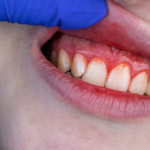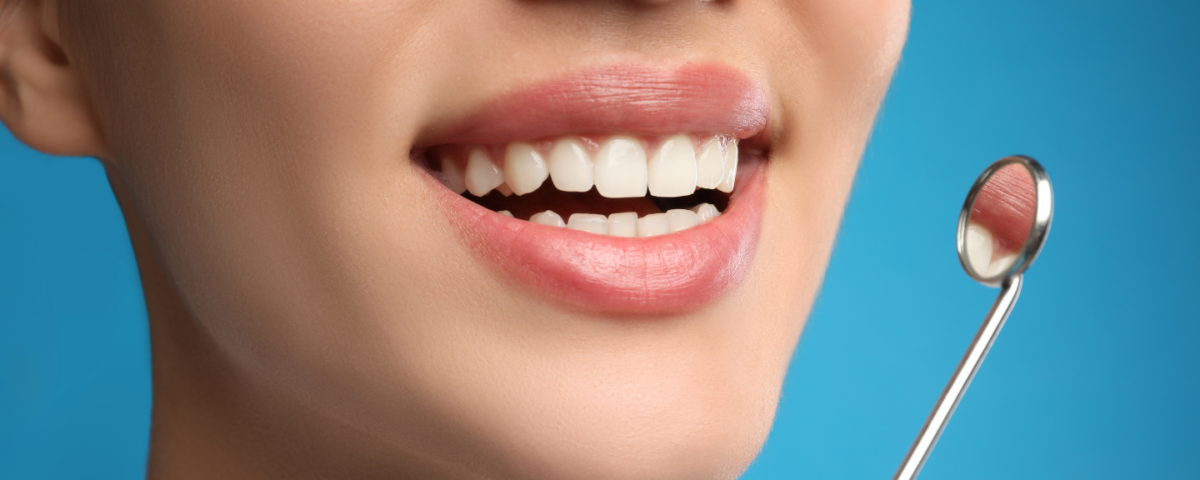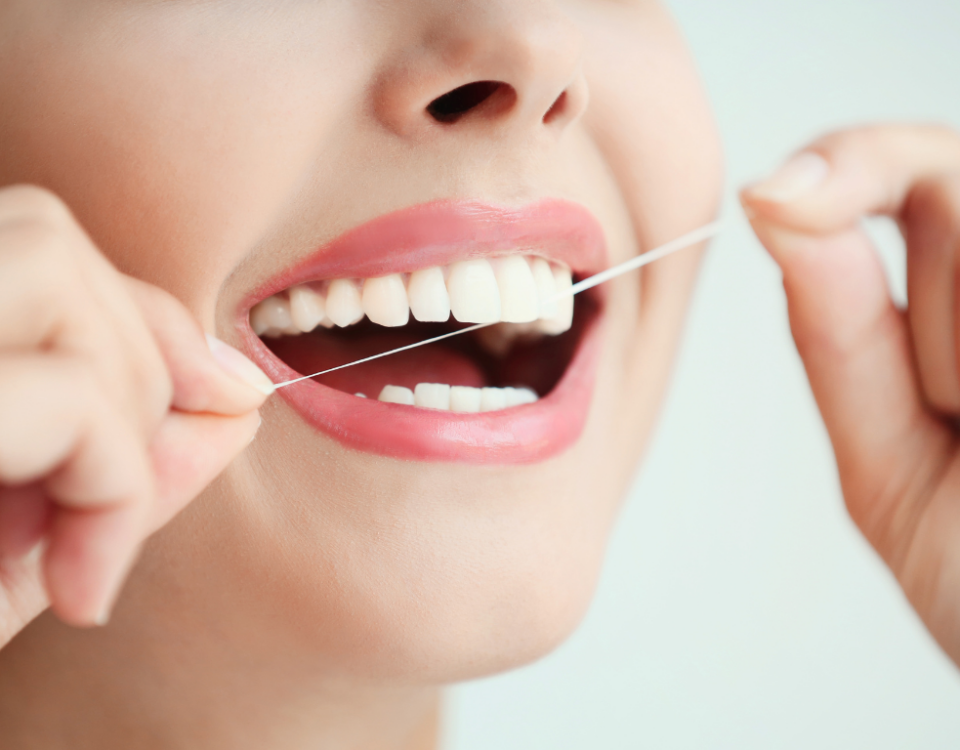
Why Are My Gums Bleeding?
July 14, 2023
Dentures vs. Dental Implants: What is Right for You?
August 21, 2023Key Takeaways:
Importance and Function of Tooth Enamel:
Tooth enamel, the hardest material in the body composed primarily of phosphorus and calcium, plays a crucial role in protecting teeth.
Causes and Prevention of Enamel Erosion:
Enamel erosion occurs gradually due to physical and chemical damage. Common causes include consuming acidic foods and drinks, dry mouth, medical conditions like GERD, and tooth grinding.
Irreversible Nature and Treatment of Enamel Loss:
Enamel cannot regenerate once it’s lost, making its preservation vital. Signs of enamel erosion include increased sensitivity, yellowing, and irregular edges on teeth.
You may not think about the various parts of your teeth, but your dentist does. Tooth enamel is a vital component of your teeth, but you can damage it permanently. Luckily, there are some ways to prevent enamel loss and have healthy teeth for life.
Discover more about the importance of tooth enamel and get the answer to your question, “What is tooth enamel?”
What Is Tooth Enamel?
According to the Cleveland Clinic, tooth enamel is the body’s hardest material, composed of mostly phosphorus and calcium. However, it is also very thin and creates only the very top layer of the teeth.
You likely don’t realize that your enamel is there because you can see through it. You may only think about your tooth enamel if it becomes stained from coffee, wine, berries, or sodas. These extrinsic stains only affect the outer layer of your teeth, discoloring the enamel.
Why Is Enamel Important? What Does Tooth Enamel Do?
Your tooth enamel does more for your teeth than you might appreciate. For example, the enamel protects the softer dentin from damage and infection. It also creates a layer of insulation against hot and cold temperatures. While translucent, the enamel combined with the darker dentin produces the pearly color of your teeth.
Your tooth enamel has several important roles in protecting your teeth and making them look good. You should do whatever you can to protect the integrity of the enamel. Good practices to adopt for the preservation of tooth enamel include:
- Avoiding acidic foods or drinks or following these foods with water to rinse off the acid
- Waiting 30 minutes after eating before brushing your teeth to give saliva time to neutralize the acid from your meal
- Using a nightguard if you grind your teeth
- Drinking water throughout the day to prevent dry mouth
- Brushing and flossing twice a day to avoid acid-producing, decay-promoting bacteria from growing in your mouth
- Using a soft-bristled toothbrush to avoid rubbing off your enamel
- Choosing fluoride-based toothpaste to strengthen teeth
- Avoiding biting or chewing on non-food goods
- Skipping tobacco use
- Getting medical treatment for GERD, alcoholism, bulimia, or dry mouth
If you have any questions about preventing future enamel loss, talk to your dentist for specific tips that pertain to your oral and physical health.
What Is Enamel Erosion?
While tough and protective against the elements, enamel can wear away. Unfortunately, since enamel does not have living cells in it, it cannot heal itself if it becomes cracked, chipped, or eroded. Once gone, your tooth enamel will never come back.
When you lose tooth enamel, you’ll notice some subtle symptoms due to the lack of this protective layer. Contact your dentist if you see the following:
- New or increased sensitivity
- Yellowing as enamel loss exposes darker dentin
- Cupping
- Irregular edges on the teeth
Additionally, if you lose enamel, your teeth have a greater chance of developing cavities or infections. Keep up with regular dental appointments, especially if you have worn enamel, to prevent small cavities from causing deeper infections inside the teeth or abscesses.
While you and your dentist cannot reverse enamel erosion, you still need to let your dentist know to see if veneers, bonding, or crowns will help protect your teeth from future damage.
Causes of Enamel Erosion
Enamel erosion happens slowly from minor harm done over time. Hence, you may not notice if you have a risk of enamel loss immediately. Physical damage to the teeth and chemical harm can both lead to enamel loss. For example, grinding your teeth or biting on pens can both cause enamel erosion. Additionally, exposure to acid from diet or produced by tooth decay-promoting bacteria also wears down enamel.
Talk to your dentist if you have any of the following causes of losing enamel:
- A diet high in acidic drinks or foods, such as sports drinks, sodas, coffee, citrus fruits, and sour candy
- Dry mouth, often induced by medications
- Medical conditions that cause stomach acid to enter the mouth, such as GERD, acid reflux, bulimia, or frequent vomiting
- Tooth grinding
- Chewing on non-food items, such as pen tops or pencils
- Eating sugary or carb-rich foods frequently, feeds bacteria in the mouth that produce acid
You can make changes to your diet and habits to avoid many of the causes of enamel erosion. Doing so will ensure that your teeth maintain their protective layer of enamel for the rest of your life. However, if you do experience enamel erosion or damage, you need to talk to your dentist about ways to protect your teeth.
Treatment of Damaged Tooth Enamel
The teeth cannot regrow enamel. However, to provide your teeth with some of their lost protection due to enamel erosion, your dentist may offer dental bonding, veneers, or crowns.
Which of these options will help you depends on the degree of enamel loss and whether you have tooth decay caused by it. For instance, crowns will provide extra protection for teeth with enamel loss and decay. Porcelain veneers and bonding improve the appearance of front teeth. These options work very well to restore the shape and color of front teeth that are misshapen and darkened due to enamel loss.
For damaged enamel, you may benefit from fluoride treatments to remineralize the teeth before serious enamel erosion occurs.
Because helping eroded teeth requires customized care, only your dentist can tell you the right way to improve your teeth’s appearance after enamel loss.
Visit Langley Dental Care for Dental Treatment to Protect Your Enamel
Protecting your tooth enamel from damage begins with caring for your oral health. Find a dentist you feel comfortable visiting so you will maintain regular appointments for cleanings and exams. These visits provide a baseline for your dental and gum health.
If you need a trustworthy dentist in the Charlotte area for family and cosmetic dentistry, contact us at Langley Dental Care. We can help you maintain your tooth enamel or protect your teeth that have eroded enamel with veneers. We’ll help you to feel comfortable with your smile and have healthy teeth and gums.



